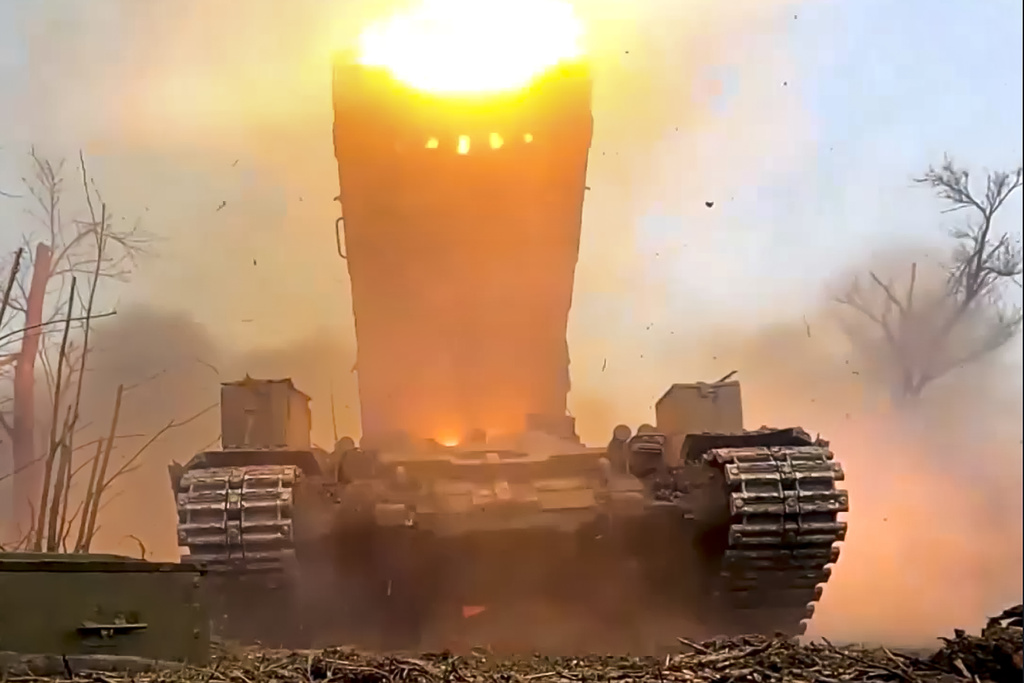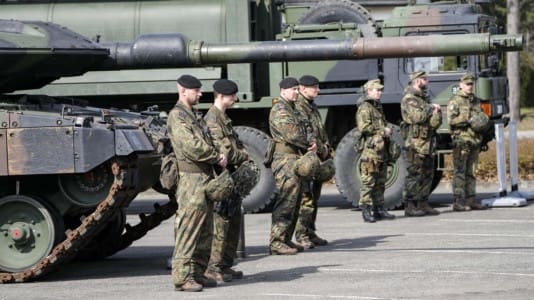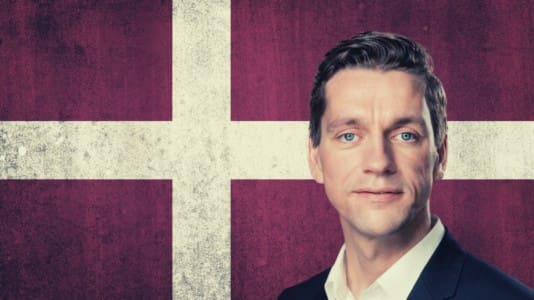The penultimate week of February was a pivotal one, with all three leaders whose words count from a Hungarian perspective, speaking out about the year-long war.
Russian President Vladimir Putin, who triggered the war with his military aggression, assessed the year in Moscow. He spoke of wounds and of a strong Russia that will win the conflict. In Warsaw, U.S. President Joe Biden, who is the master of life and death in Ukraine, inspired his allies. He spoke of a strong West that will win the war with Ukraine. And in Budapest, Hungarian Prime Minister Viktor Orbán assessed a year in which our country is navigating war-torn waters. He spoke about the meaning of NATO membership, unwinnable warfare, and the need for peace.
For a little over a year, the Hungarian government has been calling for just that: ceasefire, peace, de-escalation, ceasefire, peace, de-escalation.
The Hungarian government’s view has not deviated in line with the fortunes of war. It consistently called loudly for a ceasefire when the Russians were pushing forward like a steamroller, and also when the Ukrainians were liberating large cities. Yet, Orbán is said by some to be acting in Russia’s interests by calling a ceasefire because it would give the belligerent aggressor a chance to sort itself out, gather strength, prepare, and then attack again. In general, it would freeze the front line as a de facto border, rewarding the aggressor with the land of Ukraine.
This blatant lie of branding the ceasefire as pro-Russian has been a stumbling block in Hungary’s foreign relations for as long as the war has been going on.
And although the Hungarian government rightly does not dictate peace terms to the warring parties, perhaps it is time to talk about what kind of settlement might come after the ceasefire. For, I note quietly: it is not just that Vladimir Putin takes whatever his pawns are sitting on.
As a first step, for example, there could be a referendum after the ceasefire. It is not like the 2014 Crimean theater production in which the Russians politely asked the indigenous Crimean Tatars to please stay at home. Make it real, proper — with U.N. supervision, with a voter list drawn up jointly by the Ukrainian and Russian sides, under the watchful eye of peacekeepers, with binding force.
And if the people of Crimea or Luhansk say they want Russian power after eight years of probation, that is as legitimate as Kherson and Donetsk telling Vladimir Putin to please kindly liberate them.
Power belongs to the people, everything else is tyranny — we Hungarians understand this, perhaps better than anyone else, both here and across the border.
But there could also be a settlement in which Moscow has a choice: It either wants Ukraine in NATO or it withdraws from all the areas where the people do not want it. Even if de-nazification, genocide, and bio-labs are blatant lies, Ukraine’s membership in NATO is indeed a source of icy horror for Russia. And after the despicable invasion of Ukraine, the NATO issue is rightly changing the light of day in the settlement.
It is no longer a question of what guarantees Russia is seeking for Ukraine’s neutrality. It is now a legitimate question of what concessions Russia is willing to make in return for a Ukraine armed to NATO standards and with the West behind it to forego admission to a country no longer at war.
If Russia is democratically voted out of the territories it has already “voted in,” or if Russia is forced to withdraw from large areas of territory to avert the specter of Ukrainian membership of NATO, it is anything but a Russian victory. And that could also follow a ceasefire.
Moscow is not sulking. It is not true that, after a ceasefire, it would not have to make serious concessions, even in relation to its current military situation. A ceasefire does not just pave the way to Putin’s preferred peace. Talking about peace and ceasefires is not pro-Russian nonsense, it is a pro-Ukrainian proposal in the purest sense of the word. So it is time to restore its honor.





